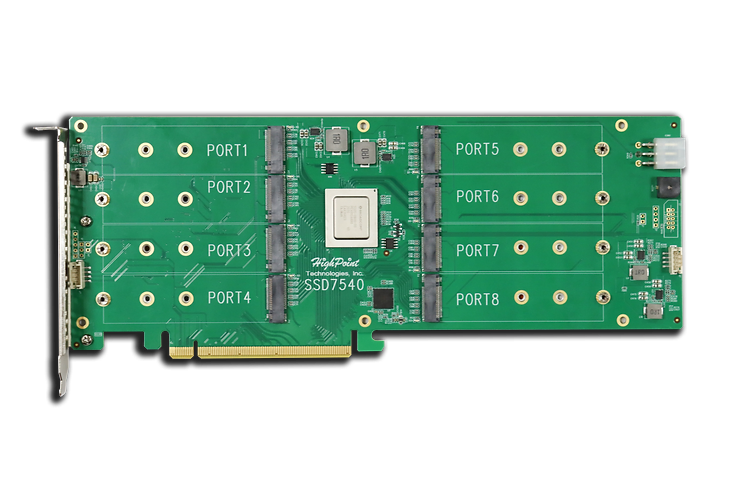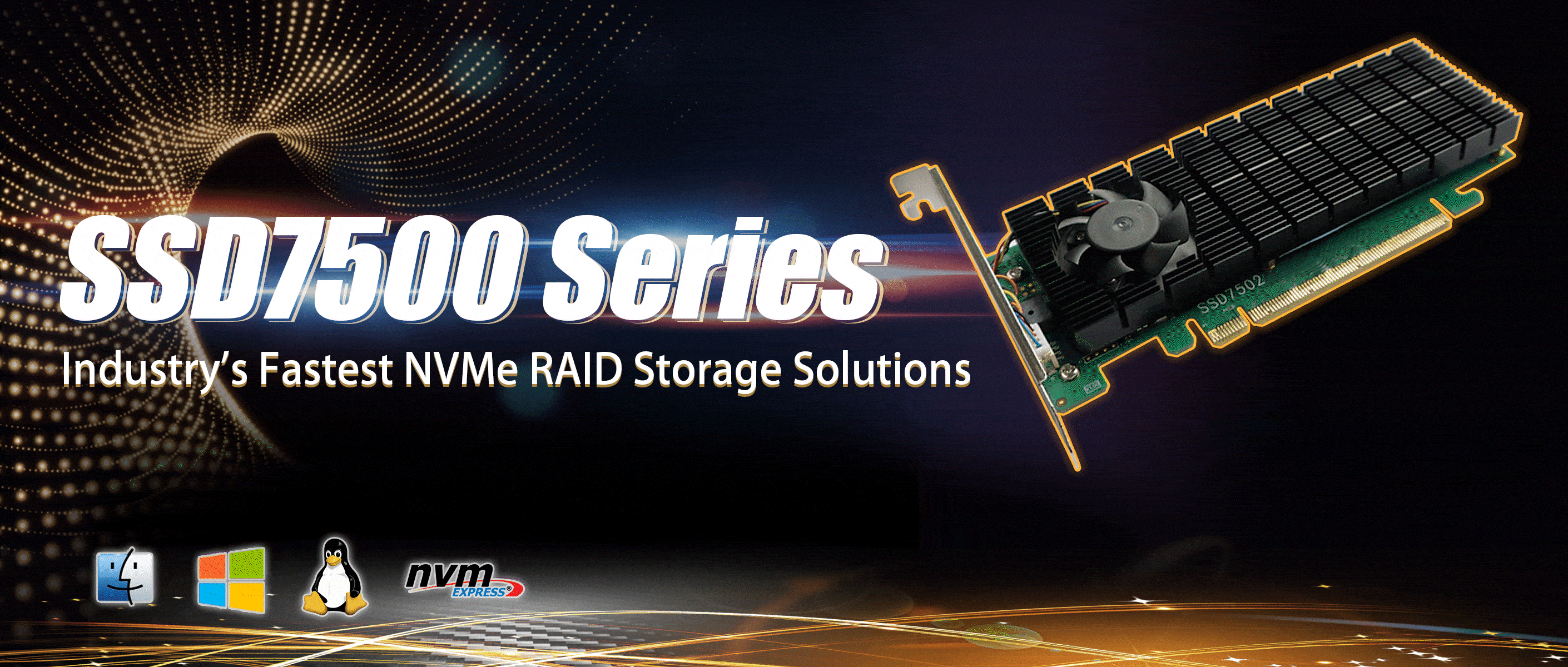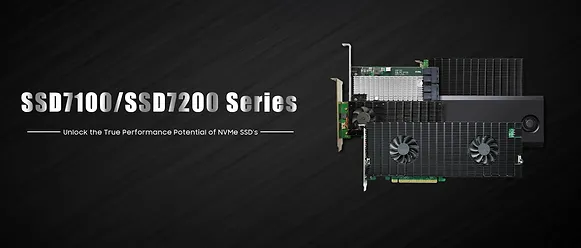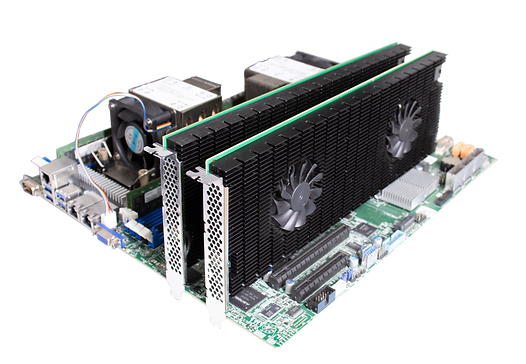High-Port-Count M.2 NVMe RAID Controllers
- Tutorial Videos & Installation Guides
-
FAQ
FnL Product Line Determining PCIe lane assignment for your SSD7000 Controller MacOS Windows Linux SSD6200 Series Controller SSD7000 Series Controller RocketStor Series RocketRAID Series RocketU Series Motherboard Compatible Report Other Questions Standard Responses for Known Issues or Subjects WebGUI eStore Gen5
- HPT
- Compatibility Reports
- FAQ
- Workaround Issue
Introduction
HighPoint's High-Port-Count M.2 NVMe RAID controllers are the industry's fastest NVMe RAID solutions. With 8 available ports, users are able to equip up to 8 M.2 NVMe on a single controller.

RAID Support
The HighPoint High-Port-Count (HPC) M.2 NVMe RAID Controllers support RAID 0, 1, and 10. RAID stands for Redundant Array of Independent Disks.
- RAID 0 is also known as "stripe" array, delivers the Maximum Performance. It requires a minimum of 2 drives.
- RAID 1 creates a hidden duplicate of the target drive. It is ideal for bootable volumes and requires at least 2 drives.
- RAID 10 requires at least 4 delivers and is comprised of a stripe between two RAID 1 arrays, allowing it to deliver read performance on par with RAID 0 while also having the security of RAID 1.
Gen4 Solution; SSD7540

The SSD7540 PCIe Gen4 x16 RAID controller can support up to 64TB at speeds up to 28,000MB/s. If you need maximum performance, you will need a Gen4 based solution. The dedicated PCIe 4.0 x16 host interface enables each NVMe SSD to interact directly with the system CPU to ensure maximum transfer performance and near instant response time.
SSD7540 - 8x M.2 (PCIe Gen4 x16): MSRP USD $1099.00
Gen3 Solution; SSD7140A

The SSD7140A PCIe 3.0 x16 controller can support up to 64TB at speeds up to 14,000MB/s, and is the industry's fastest single-card PCIe Gen3 RAID solution. The SSD7000 Series controllers are fully independent NVMe RAID storage solutions. Unlike the vast majority of NVMe controllers available for mainstream PCIe 3.0 host platforms, SSD7000 series controllers are not restricted to a particular chipset or motherboard series, and require no bifurcation support.
SSD7140A - 8x M.2 (PCIe Gen3 x16): MSRP USD $729.00
Cross-Sync

HighPoint's Cross-Sync technology allows customers to easily link two SSD7500 or SSD7500 series M.2 NVMe RAID controllers to function as a single array; doubling transfer performance and storage capacity. Cross-Sync of two SSD7140A, nets you a transfer performance of 28,000MB/s with up to 128TB of storage. If you need even faster speeds, we have a Gen4 solution that will blow your mind; a dual-card Cross-Synced SSD7540 gets you an insane transfer perfomance of up to 55,000MB/s!